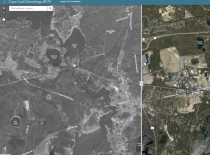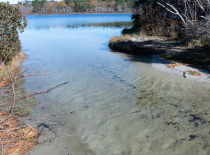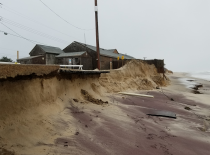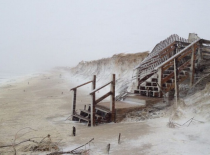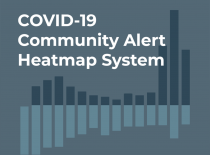Category: Newsletter
The Cape Cod Commission's Chronology Viewer enables users to view historic trends and aerial imagery from 1938 to 2020. It has recently been upgraded with a new look, updated data, and an easier-to-use interface.
The Cape Cod Commission has been selected as a digital equity planning provider for the Cape’s 15 communities under the Massachusetts Broadband Institute's Municipal Digital Equity Planning Program. Through this program, the Commission will work with regional stakeholders to identify the community's needs to drive investment and activities to broaden internet access and usage.
The Cape Cod Commission is creating a Regional Housing Strategy to address housing supply, affordability, and availability issues by identifying appropriate areas for housing development, along with policies and strategies to further the plan’s goals.
As part of the Freshwater Initiative, the Commission is partnering with the Association to Preserve Cape Cod (APCC) to develop a pond water quality monitoring program.
In 2022, the Cape Cod Commission worked with ten Cape Cod towns to examine vulnerabilities in the roadway network and identify adaptation improvements. The team has developed initial concepts for improvements and potential adaptation solutions for each prioritized site. Work in the remaining five Cape Cod towns of Chatham, Falmouth, Harwich, Mashpee, and Provincetown kicked off in early December.
The Cape Cod Commission has been awarded a $148,534 grant from the Massachusetts Executive Office of Energy and Environmental Affairs to develop tools to help communities regulate development within the floodplain and improve resiliency to climate change threats.
There’s more to explore within the Cape Cod Coastal Planner, a decision-support tool that helps users understand the climate change hazards impacting Cape Cod’s coastline and some of the adaptation strategies available to address them.
To keep the community informed, the Cape Cod Commission partnered with Cape Cod Healthcare and the Barnstable County Department of Health and Environment in April 2020 to create an online COVID-19 community alert heat map system showing the numbers of confirmed cases of COVID-19 within Barnstable County. The Cape Cod Commission discontinued updating the application on January 31, 2023.
The 2023 session of the Cape Cod Climate Ambassadors began in a new way: for the first time, students met for the opening meeting in person instead of online.
A status on projects currently under review by the Cape Cod Commission.
